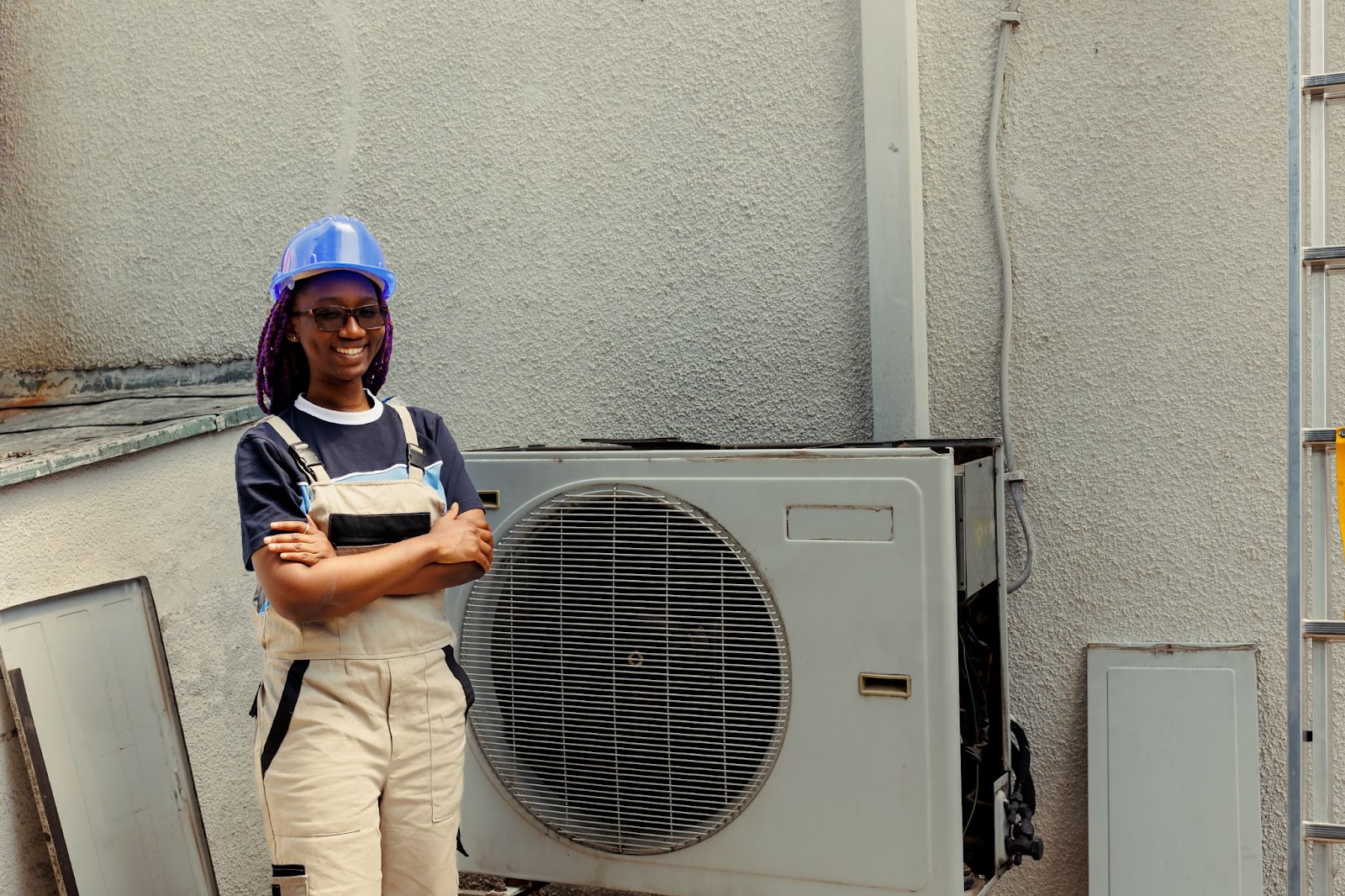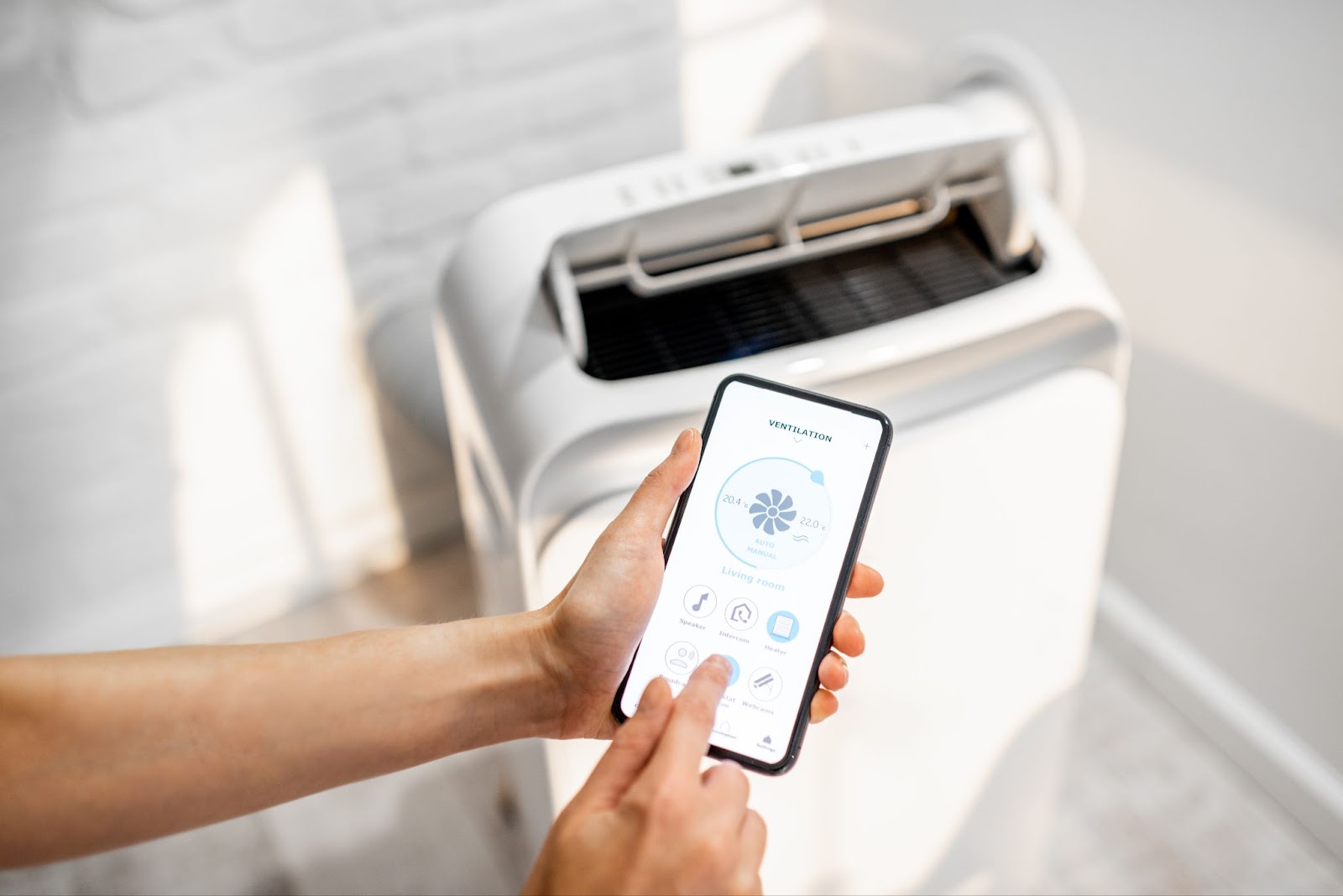
Central vs. Portable Air Conditioning: What’s Best for Your Home?
Air conditioning has become a staple in modern homes, providing respite from sweltering summers and ensuring comfortable indoor environments year-round. However, when it comes to cooling solutions, homeowners often need help choosing between central and portable air conditioning systems.
Both options have advantages and drawbacks, making the decision crucial based on individual needs, budget, and living circumstances. In this article, we delve into the intricacies of central and portable air conditioning to help you determine which option suits your home best.
Central Air Conditioning: The Cool Core of Your Home
Central air conditioning systems are designed to cool entire homes efficiently. They consist of a central unit typically located outside the house, which distributes cool air through ducts to various rooms via vents installed in ceilings, walls, or floors. The central unit comprises a compressor, condenser, evaporator coil, and refrigerant, all working together to regulate indoor temperatures.
Pros of Central Air Conditioning
Whole-House Cooling
Central AC systems are adept at maintaining consistent temperatures throughout the entire home, ensuring every room stays comfortable. This means the entire house will be cooled.
Improved Aesthetics
With no bulky units cluttering up rooms, central air conditioning offers a sleek and unobtrusive cooling solution, preserving the aesthetic appeal of interiors. They are also better than window-type units which would stick out of the wall.
Enhanced Air Quality and Quieter Operation
Central systems often come equipped with air filters, effectively removing dust, pollen, and other allergens from circulating air, thereby improving indoor air quality. The main components of central air conditioning are located outside the living spaces, resulting in quieter operation compared to portable units.
Cons of Central Air Conditioning
High Initial Cost and Complex Installation
Installing a central air conditioning system can be expensive, especially if ductwork needs to be added or modified. It would also require a lot of work inside the house. The installation process for central air conditioning systems can be disruptive and time-consuming, often requiring professional expertise.
Limited Zoning Control
Central AC typically cools the entire house uniformly, which may not be ideal if different family members prefer different temperatures in various rooms.
Portable Air Conditioning: Flexibility in Cooling
Portable air conditioners offer a flexible alternative to central systems, particularly in homes where ductwork installation is impractical or cost-prohibitive. These units are self-contained and can be moved from room to room, providing localized cooling wherever required. Portable ACs typically consist of a single unit with an exhaust hose that vents hot air outside through a window or door.
Pros of Portable Air Conditioning
Affordability
Portable AC units are generally more affordable than central systems, making them an attractive option for budget-conscious homeowners. If you have a very limited budget, then portable units are the best choice.
Flexibility and Portability
The portability of these units allows homeowners to target specific areas for cooling, making them ideal for apartments, small homes, or rooms that require additional cooling. You can place them wherever they are needed inside the house.
Easy Installation and No Permanent Modifications
Unlike central air conditioning, portable units require minimal installation effort. They can be set up quickly without the need for professional assistance or with handyman stafford va. Since portable air conditioners don’t require permanent installation, renters can use them without making alterations to the property.
Cons of Portable Air Conditioning
Limited Cooling Capacity
Portable AC units are generally less powerful than central systems, which may struggle to adequately cool larger spaces or multiple rooms. For most, this is the reason why they don’t use portable ACs.
Noisy Operation
Portable air conditioners can be noisier than central systems, as the compressor and fan are housed within the same unit placed inside the room being cooled. The noise they generate can be too much for some people.
Space Requirements and Less Energy
While portable units offer flexibility, they still occupy floor space and require access to a window or door for venting hot air, which can be inconvenient in some settings. Efficient in comparison to central air conditioning, portable units may be less energy-efficient, leading to higher electricity bills over time, especially if used extensively.
Choosing the Right Option for Your Home
How do you go about choosing the right kind of AC to use? Here are a few ideas that you can keep in mind when deciding:
Considerations
For larger homes with existing ductwork, central air conditioning may offer the most effective and efficient cooling solution. If cost is a significant concern or if you’re looking for a temporary cooling solution, portable air conditioners might be the better choice.
Evaluate whether you require cooling in specific rooms or areas only, or if whole-house comfort is paramount. If you plan to stay in your current home for an extended period, investing in central air conditioning may provide greater comfort and long-term value.
Climate Considerations
Central air conditioning systems often incorporate dehumidification features, making them better suited for humid climates where moisture control is essential. In regions experiencing extreme heat, central air conditioning may provide more consistent and reliable cooling performance compared to portable units.
Lifestyle Factors
Consider how you use your living spaces. If you spend most of your time in a few specific rooms, portable air conditioning units can offer targeted cooling where it’s needed most. Assess your tolerance for noise, especially if you’re sensitive to the sound of fans or compressors running continuously.
Maintenance Requirements
Regular maintenance, such as changing filters and scheduling professional tune-ups, is essential to ensure optimal performance and longevity. These units require periodic cleaning of filters and condenser coils, as well as ensuring proper venting to maintain efficiency.
Choosing the Right Air Conditioning Unit for Your Home
Central and portable air conditioning systems each have their own set of advantages and limitations, and the choice between the two ultimately depends on factors such as budget, home size, climate, and lifestyle preferences. While central air conditioning offers whole-house comfort and enhanced aesthetics, portable units provide flexibility and affordability, making them suitable for smaller spaces or temporary cooling needs.
By carefully evaluating your requirements and considering the pros and cons of each option, you can make an informed decision to ensure optimal comfort and efficiency in your home’s cooling system.
Do you need expert advice regarding AC? Visit our Kerivan-Lane blog to learn more about our air conditioning services and more!
